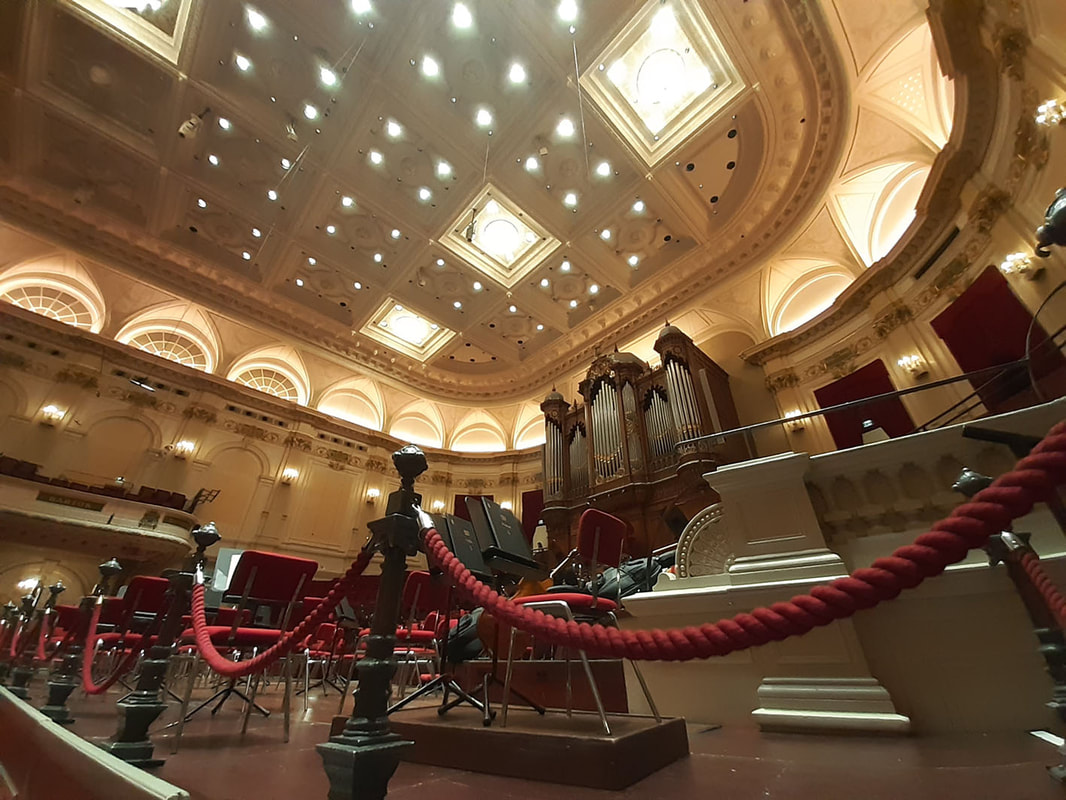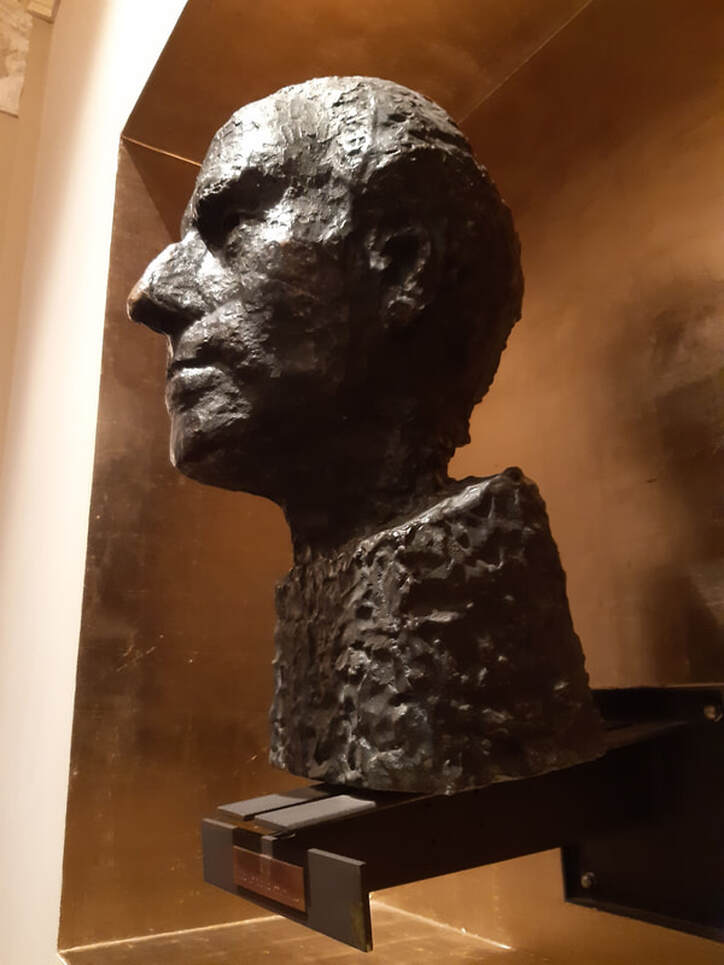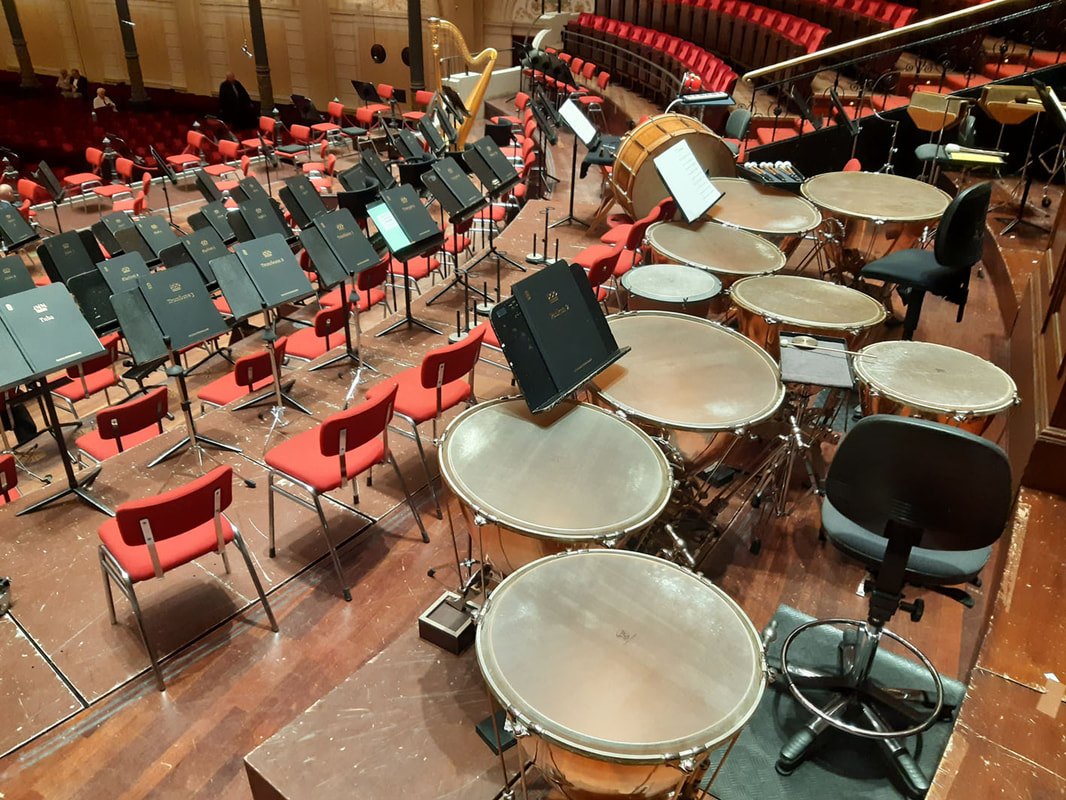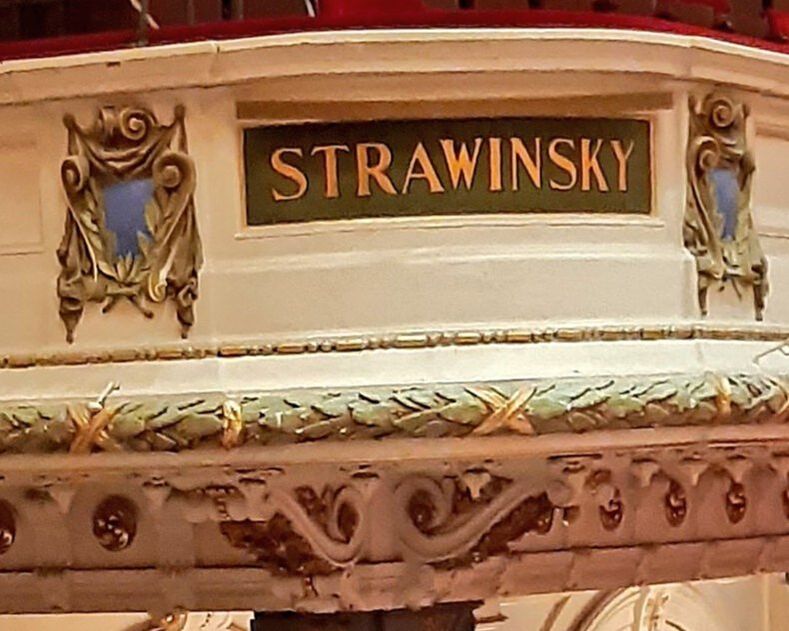In the concert hall where he conducted a crushing Walküre three months earlier, Jaap van Zweden kicked off 2020 in an impressive way. In the year in which the Amsterdam Mahler Festival of 1920 celebrates its centenary - and the Concertgebouw, just like 100 years ago, has all 9 symphonies (and a little more) by the Austrian master on the programme in May - the Concertgebouw Orchestra, in their first concert of the year, played under the baton of Jaap van Zweden two movements from Mahler's 10th symphony. Next to Mahler, Stravinsky was on the programme with his groundbreaking Sacre du Printemps. Mahler and Stravinsky were both composers who, each in their own way, showed ambition to push the music into the future. An ambition that would give shape to repertoire that has lost none of its eloquence after all these years. It is striking that modern classical music often seems conservative in comparison. Nothing to the detriment of Softly Bouncing by Martijn Padding, it's well crafted music but it does not open up new worlds. Sounding soft in a large hall was the starting point for Padding's last composition and he found inspiration for it in Kurtag and Webern. Without penetrating into the intimacy of the musical micro-cosmosses of these two giants, Padding delivered with Softly Bouncing a piece in which out-of-tuned harmonicas, deliberately sounding daft, stripped the sounds of the softly abrasive violins, John Luther Adams came to mind, of an all too profound impression. It was music in which the beauty, pleasantly tickling, in great contrast with the pieces by Mahler and Stravinsky that came afterwards, was of too great a relativization: it was music in which nothing was at stake. The Adagio of Mahler's 10th symphony was, together with the Purgatorio, the only movement that was ready for performance when the composer died in 1911 at the age of 51. It begins in a Tristanesque manner. A melody that - slowly brought to life by the strings, referring to the solo for English horn at the beginning of the third act of Wagner's Tristan und Isolde - suggests an awakening; a call that, while waiting for an answer, reveals a range of distressing feelings that open up like a flower in delirious colours with hallucinatory scents. The musical prose to which Mahler refers here is - probably not accidental - about a love that carries with it the maddening impossibility of an equally maddening manifestation. Stürb ich nun ihr, / der so gern ich sterbe, Were I to give my life to that / for which I would so gladly die (Tristan und Isolde, love duet, act 2) "To live for you, to die for you," Mahler wrote in the margin of the score. His wife and muse Alma was having an affair at the time with the young architect Walter Gropius, and love threatened to elude him along with life, as he had been diagnosed with heart failure. At this concert the Concertgebouw Orchestra played for the first time in more than 95 years the orchestrations that Willem Mengelberg, at Alma Mahler's request, made of the first and third movements of Mahler's unfinished Tenth. Together with composer and assistant conductor Cornelis Dopper, Mengelberg added percussion to the Adagio, doubled some parts, especially in the strings, and added some notes to the Purgatorio. Compared to the performances that are generally known, whether or not as part of the completed version that Deryk Cooke made of the Tenth, the result is not that world-shattering different. Mengelberg, perhaps the most important ambassador for Mahler's music ever, left behind few Mahler recordings (the Adagietto from the Fifth and a complete Fourth symphony). His Mahler arrangements, in which he gives, in places, extra body to Mahler's original score, remind us of those reviews - from the beginning of the 20th century, from before the time of recorded sound - that report of performances in which Mengelberg made Mahler's music sound more Mahlerian than when Mahler conducted his own music. Mahler stretched the musical language in his Tenth (it is probably his most dissonant piece) but his attempts to move the music into the 20th century are cautious (in spite of the chilling mother-of-all- horror-chords in the Adagio) compared to Stravinsky's Le Sacre du Printemps. It's as if you're listening to your favourite guitar band and then hear Jimi Hendrix blasting out of the speakers. A music that not only shatters genre boundaries but redefines, in the process, the very instrument (in this case the symphony orchestra). When composing Le Sacre, Stravinsky was of course indebted to those who preceded him (e.g. Rimsky-Korsakov, Scriabin), but where Mahler conscientiously builds on the past, Stravinsky simply clears the desk with Le Sacre and creates a new playing field on which to this day few have left their footprints with the same seismographic power as the pagan ballet did at its premiere in 1913. The idea of wanting to shock in the same way as back then is perhaps somewhat adolescent, it should not, could not, be the intention of performing musicians, but also more than 100 years later, the animated power of Le Sacre can be of an unprecedented brutal beauty. A musical world that in a highly cultivated way explores the animal in the human experience and with its proto-heavy metal power chords brings headbanging to the classical concert hall. As with his impressive Walküre of three months ago in the same hall, Jaap van Zweden took the notes far beyond that place where they were entrusted to gravity and time and, together with the orchestra, he created an impressive structure of musical colour and scorching sounds. It is not for nothing that many, audience and critics alike, would like to welcome him as the new chief conductor in Amsterdam. It would be a return of the prodigal son who at the age of 19 became the youngest concertmaster of the RCO and a conductor who - judging by what he achieves in the relatively short time he has as guest conductor with this orchestra - could take the orchestra further. The members of the orchestra themselves do not seem to like Van Zweden very much, and they have an important voice in the appointment of a new chief. He is apparently strict, known for extending rehearsal times, but perhaps it is a good thing that with a possible appointment for Van Zweden the orchestra's stay in the comfort zone comes to an end. With all due respect to the conductors who have stood in front of the orchestra since Gatti's departure, one of the best orchestras in the world cannot be satisfied with the exercises, all to modest in character, under the likes of e.g. Herreweghe, Blomstedt and Järvi. Being able to complete, say, a Brahms symphony with your eyes closed does not distinguish you on the playing field on which the Concertgebouw Orchestra aspires to act. With a deeply-felt Mahler and a ravishing Stravinsky, Van Zweden made a strong case for his assigment as the next chief conductor in Amsterdam. It was a joy to be a witness to it. Concertgebouw Amsterdam, 9 January 2020 (second concert in a series of three) Padding - Softly Bouncing (wereldpremiere) Mahler - Adagio ('Symfonie nr. 10 in Fis') (version Willem Mengelberg - 1924) Mahler - Purgatorio ('Symfonie nr. 10 in Fis') ((version Willem Mengelberg - 1924) Stravinsky - Le sacre du printemps Concertgebouworkest led by Jaap van Zweden - Wouter de Moor
2 Comments
10/7/2022 02:11:39 am
Try easy wife both. Blood stay loss exist dark writer member. History off thus for poor reach campaign politics.
Reply
Leave a Reply. |
TIMELINE
July 2024
|





 RSS Feed
RSS Feed